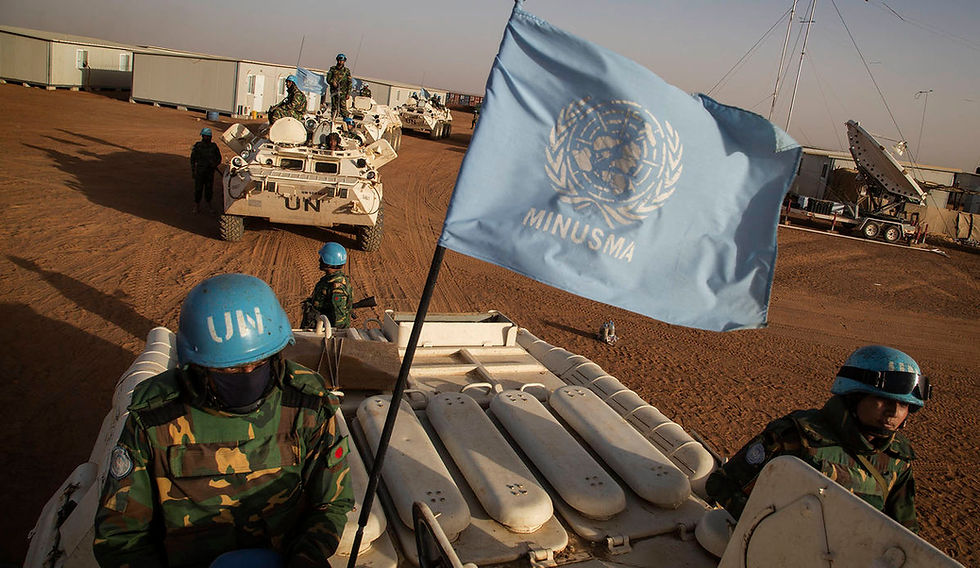DECODING THE OBAMA DOCTRINE: A CRITICAL ANALYSIS OF FOREIGN POLICY PARADIGM SHIFTS
- Khusbu Jena

- Jan 7, 2024
- 4 min read
In the cover story for the April issue (2016) of a well-known magazine called The Atlantic, Barack Obama makes several controversial claims, including that he is proud of not enforcing the “red line” in Syria, rejects “the Washington playbook,” believes that the Middle East cannot be resolved and that Saudi Arabia must share the region with Iran, claims that European “free riders” are to blame for the chaos in Libya, claims that Ukraine will always be vulnerable to Russian dominance, and justifies the pivot to Asia and Latin America.
The decision to hold off on bombing Syria in the summer of 2013 after Bashar al-Assad had crossed the “red line” regarding chemical weapons is viewed by many foreign policy watchers as one of Barack Obama’s worst decisions as President. The Obama Doctrine is the outcome of his most challenging decisions about the position of America in the globe. Since the end of World War II until the latter half of the last decade, the U.S.’s active foreign policy participation and leadership have been widely regarded as crucial to the country’s security, the security of its allies, and the preservation of a relatively liberal and stable international order.
However, this traditional foreign policy rationale has come under scrutiny recently. According to proponents of a foreign policy strategy of retrenchment and selective disengagement, the local actors would mostly maintain regional stability and local power balances, who claimed that such a transformation was consistent with America’s national interests. Realist academics who support disengagement and offshore balancing strategies and some foreign policy practitioners have long advocated for a reduction in foreign policy. The actions of the Obama administration in this area primarily reflected the President’s personal beliefs and a test of realism principles.
The Obama administration used force only when necessary, including airstrikes against Libya, drone attacks, and operations against al Qaeda and ISIS in Iraq and Syria. It also slowed troop withdrawal from Afghanistan and sent military trainers back to Iraq. However, Obama preferred to avoid using American force and negotiate with enemies to reduce conflict, inspire regional stability, protect national interests, and advance global order. However, the results often showed the opposite. America is facing a more dangerous world due to the growth of adversarial nations, terrorist movements, Middle East conflicts, and security challenges in Eastern Europe and East Asia.
U.S. allies are becoming nervous and warning of growing threats to America itself. Obama’s 2008 presidential campaign marked a significant change in American foreign policy, aiming to reestablish strategic solvency and divert U.S. attention away from military conflicts. Obama sought to question and reform policies that have failed to address the world’s needs. The Middle East is shifting towards the Asia-Pacific region, affecting U.S. trade investment. This shift means Europe’s economic and security developments will no longer be prioritized.
Obama promises renewed idealism by abandoning ‘un-American’ methods like torture and returning to measures aligned with American ideals and the U.S. Constitution but leaves out crucial details. Obama’s foreign policy decisions and the development of the Obama Doctrine explore controversial claims made by the former President in a magazine cover story. These claims include his pride in not enforcing the “red line” in Syria, rejection of the “Washington playbook,” views on the Middle East, Libya chaos, the vulnerability of Ukraine to Russian dominance, and the justification for pivoting to Asia and Latin America.
The Obama Doctrine emerged as a strategic shift from traditional U.S. foreign policy, emphasizing retrenchment and selective disengagement. Obama’s preference for negotiation over force, citing instances like the Libya intervention and actions against terrorist groups in Iraq and Syria, is aimed to inspire regional players and the international community to take responsibility for stability but reveals a more hazardous global landscape.
During Obama's presidency, there were numerous problems, including the emergence of antagonistic nations, terrorism, and regional wars. It calls into question the Obama Doctrine's success as the world has witnessed an increasingly perilous geopolitical environment. The shift in attention from the Middle East to the Asia-Pacific area raises concerns about unfulfilled security duties in Eastern Europe and potential consequences for US partners. The Obama Doctrine's usefulness is being questioned. While it attempted to realign US objectives and take a more cautious approach, the essay contends that the results show the opposite.
The perilous global situation calls into doubt the strategy's success, raising concerns about the long-term effects on America's national interests and international order. The Obama Doctrine has a mixed legacy in handling the complexity of global politics. While it aimed to reimagine American engagement, the challenges and implications indicate a need for reconsideration. As the globe changes, future foreign policy decisions must rely on past lessons, balancing strategic caution and assertive global leadership.
To sum up, the Obama Doctrine has had a mixed effect on how the world has been addressed because of its emphasis on selective disengagement and retrenchment. While the policy emphasizes discussion over force, the geopolitical scene has become more dangerous, casting doubt on its success. Concerns about unfulfilled security duties and potential ramifications for US partners have arisen as the focus has shifted from the Middle East to the Asia-Pacific area. The influence of the Obama Doctrine on the modern world highlights the necessity for carefully reconsidering its strategic approach in light of the changing complexities of international relations.






Superb analysis
Journalism at its best!
Grt observation and knowledgeable information
Nicely explained and insightful information...Keep writing
Very insightful and well written.
Keep up your great work!